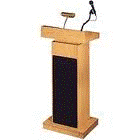
Discipline-Based Education Research Group Speaker Series
Date of this Version
1-29-2015
Document Type
Presentation
Citation
DBER Group Discussion on 2015‐01‐29
Abstract
Though elementary teacher educators introduce new, reform‐based strategies in science and mathematics methods courses, researchers wondered how novices negotiate reform strategies once they enter the elementary school culture. Given that the extent of parents’ and veteran teachers’ influence on novice teachers is largely unknown, this grounded theory study explored parents’ and teachers’ expectations of children’s optimal science and mathematics learning in the current era of reform. Data consisted of semi‐structured, open‐ended interviews with novice teachers (n=20), veteran teachers (n=9), and parents (n=28). Researchers followed three stages of coding procedures to develop a logic model connecting participants’ discrete designations of the landscape, regulating phenomena, contextual orientation, and desired outcomes. This logic model helped researchers develop propositions for future research on the interactive nature of parents’ and teachers’ influential role in elementary science and mathematics education. Implications encourage science and mathematics teacher educators – as well as school administrators – to explicitly develop and support novice teachers’ ability to initiate and sustain parent/family engagement in order to create a school climate where teachers and parents are synergistically motivated to change.
Included in
Curriculum and Instruction Commons, Elementary Education and Teaching Commons, Instructional Media Design Commons, Science and Mathematics Education Commons


Comments
Copyright (c) 2015 Julie Thomas & Sandra B. Cooper